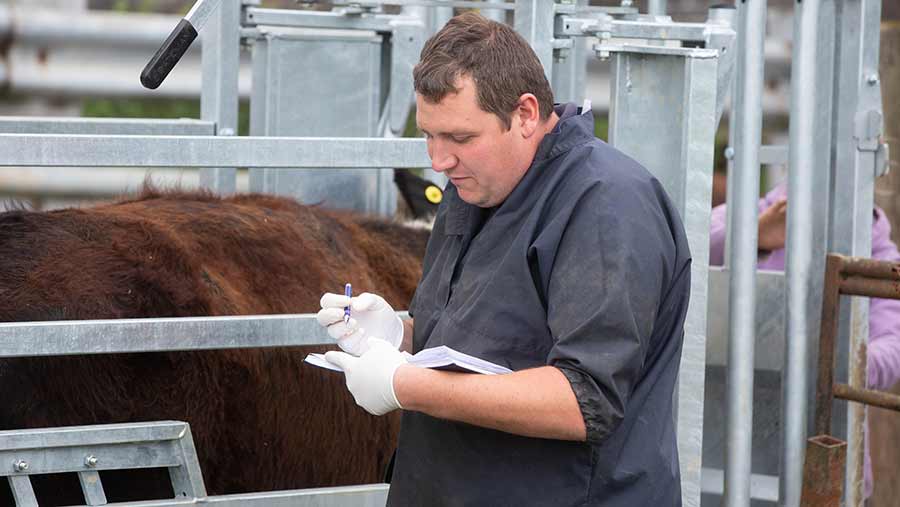Animal Health and Welfare Pathway launched under SFI
 © Tim Scrivener
© Tim Scrivener A new government initiative which provides funding for livestock farmers and vets to work together to improve the health of national flocks and herds has been launched in England.
Farmers who keep cattle, sheep and pigs can get funding to pay for a vet or team chosen by a vet to visit their farm and carry out an annual health and welfare review.
During the visit, vets will provide bespoke advice and carry out diagnostic testing around endemic diseases.
See also: Bovine TB cattle vaccine field trials move to next phase
Defra has been testing its Animal Health and Welfare Pathway with volunteer vets and farmers since last September. It says the feedback from vet visits has been “really encouraging”.
And it is now ready for a “soft launch” of the pathway under the SFI Annual Health and Welfare Review.
Initially, only farmers who are eligible to claim BPS payments will be able to register. But Defra is working to expand the scheme to non-BPS eligible farmers and to allow multiple reviews, including for multiple species in the future.
The payment rates, which will include the cost of the vet’s time and the diagnostic testing, have been agreed at:
- £684 for pigs
- £436 for sheep
- £522 for beef cattle
- £372 for dairy cattle.
The difference in the species rates is down to the cost of the diagnostic tests.
The National Sheep Association (NSA) welcomed the launch of the scheme, saying it was an important pillar of the government’s manifesto commitment to protect and enhance farm animal health and welfare, and to maintain and build on existing world-leading standards.
NSA chief executive Phil Stocker said: “The NSA believes the Animal Health and Welfare Pathway will be a helpful and effective tool in maintaining and improving animal health and welfare.
“The initial veterinary review by the farm’s vet is just the first step and we expect the pathway to then expand to offer more in-depth screening or monitoring for specific diseases or parasites that might be holding back flock performance.”
